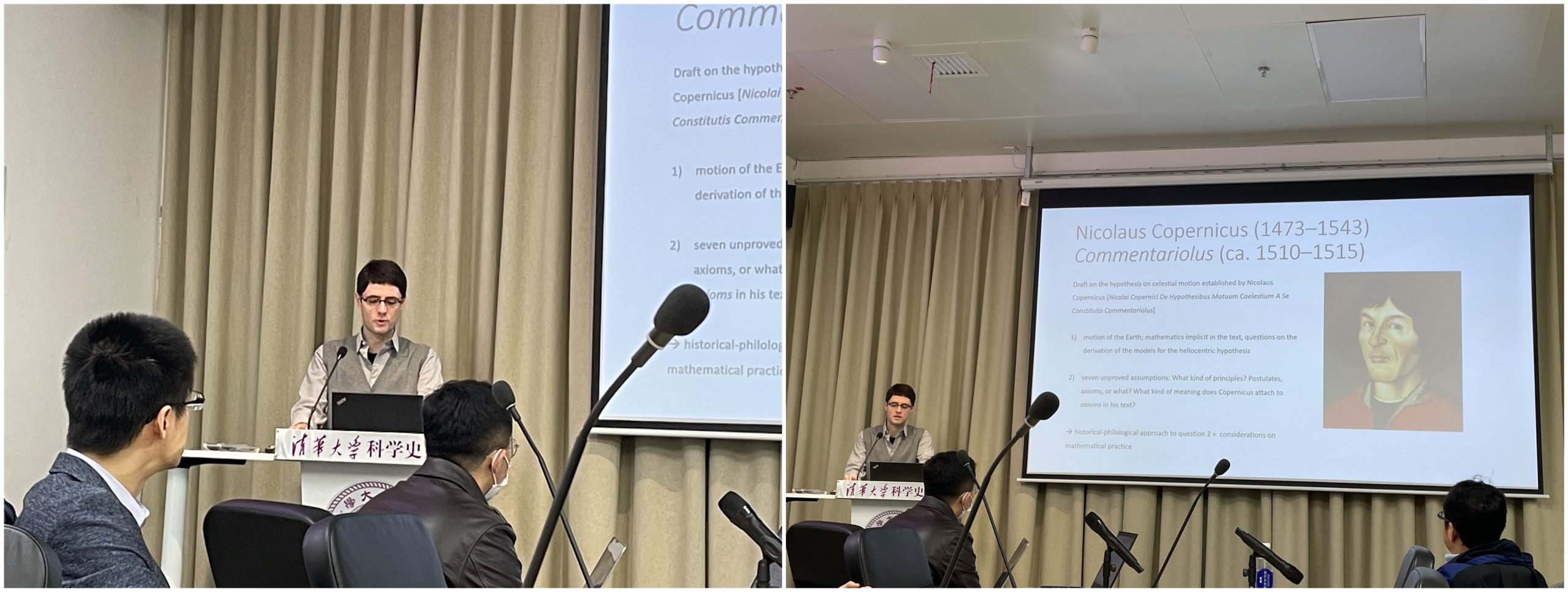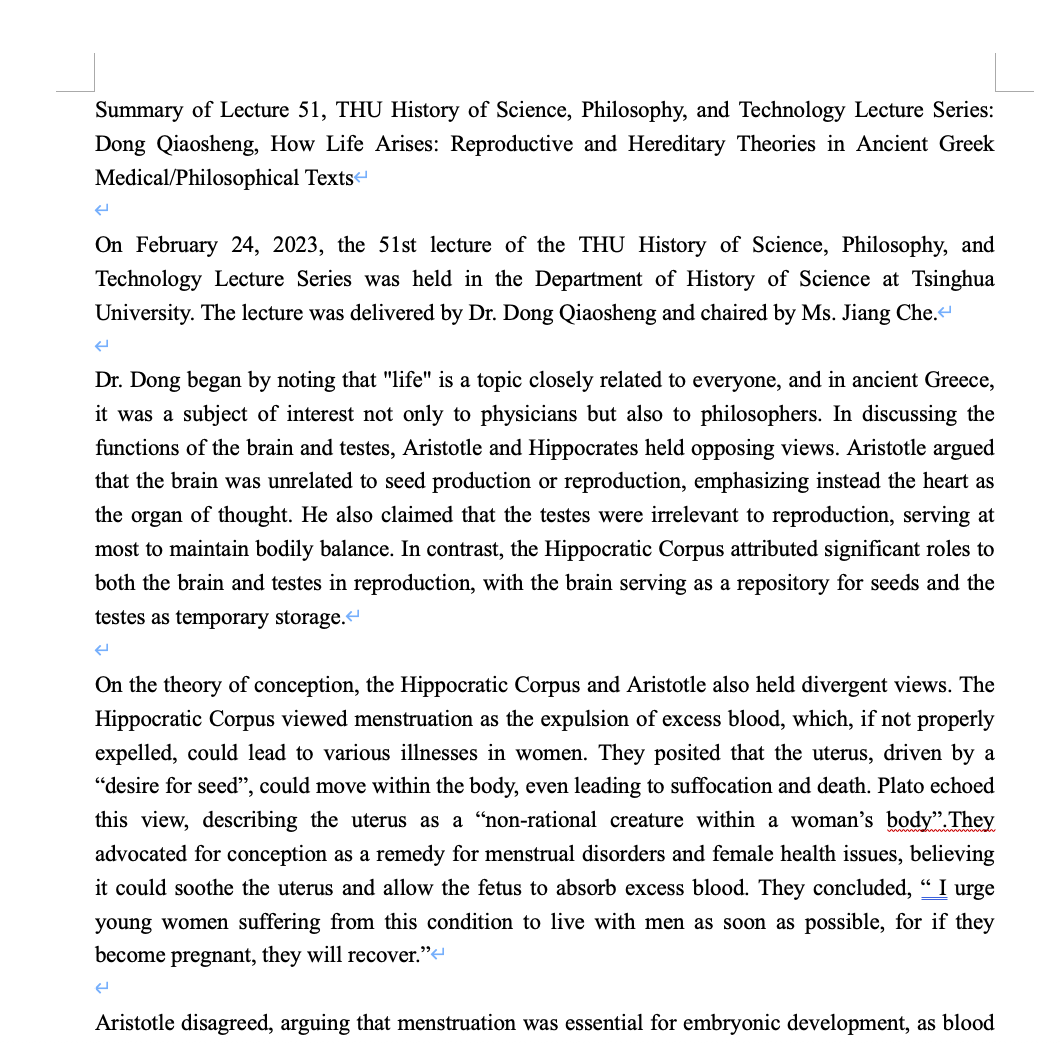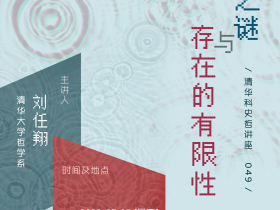
On April 6, Alberto Bardi delivered a presentation entitled “Copernicus’s Axioms? Tradition and Intuition in the History and Philosophy of Western Mathematical Sciences” at the department, which explored the history of the debates about the foundations of western mathematical sciences, a locus where logic, philosophy, and mathematics meet.
Ranging from Euclid to Solomon Feferman, Bardi’s research focused on a case study in the history of astronomy: the seven unproved assumptions provided in the introduction of the brief Copernican treatise entitled Nicolaus Copernicus’ draft on the models of celestial motions established by himself, better known as Commentariolus (ca. 1515). These assumptions deal with the renowned Copernican hypothesis that sets the Earth in motion and the Sun, not affected by motion, near the center of the universe. Although Copernicus omitted the proofs for brevity (proofs will appear later in De Revolutionibus), the deductions in the Commentariolus are supposed to be drawn from the initial seven assumptions. Copernicus refers to them with the Latin word petitiones and apparently understands them as an equivalent of axiomata (axioms) (Lat. […] petitiones quas axiomata vocant).
The nature and the logic of those assumptions have triggered debates among scholars. Are they postulates, axioms, or something else? Notably, Noel Swerdlow claimed that Copernicus had addressed them incorrectly as axioms and made more assumptions than necessary, and pointed out problems of internal logic and axiomatic rigor. Edward Rosen, in reply to Swerdlow’s interpretation, defended Copernicus and criticized Swerdlow's interpretation as anachronistic. Later on, André Goddu, Mathias Vesel, Michelle-Pierre Lerner, Alain Segonds, and other scholars provided more interpretations of Copernicus’assumptions. Based on this, Bardi provided a new interpretation that is built on his philological research on the manuscripts of ancient and medieval mathematical sciences and philosophy. In addition to historical-philological evidence, Bardi constructed an interpretive framework building upon recent philosophical studies of mathematical practice.





